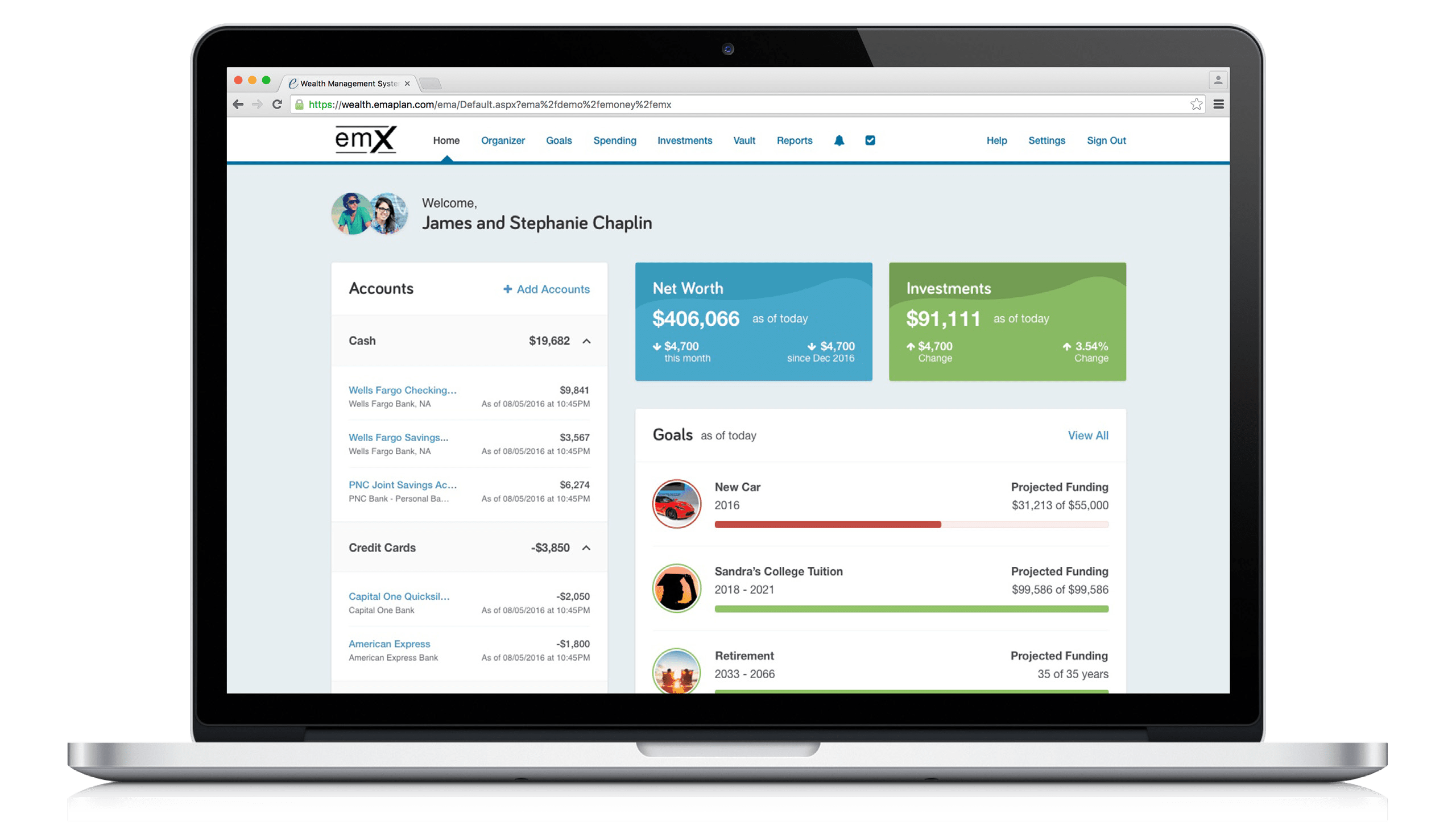Fifty years ago, when the concept of financial planning was born, it was really all about retirement planning. The key question was: “Am I going to have enough money to sustain me in retirement?” As a result, the central organizing principle of the financial plan was almost always a simple goal of accumulating enough money to retire comfortably.
Over time, as the financial planning profession grew, practitioners and clients alike added other “goals” to their financial plans. Yet these additional goals weren’t very different from the founding goal of retirement. They were all pretty linear — merely about accumulating enough (more) money to do additional things, like buying a boat, or traveling, or being able to send the kids to college in addition to merely being able to retire.
Technology, of course, supported this approach, because the calculations used to estimate the accumulation of wealth are fairly straightforward and easily implemented in software. Suddenly almost any financial professional with the right software could create a “financial plan” consisting of simple wealth accumulation goals.
But What if Your Financial Life Isn’t Just About Retirement?
A simple goals-based financial plan might be right for mature clients who have retirement squarely in their sights. They have already made the most critical financial decisions that they faced in their lives, and those outcomes are known. And while they have enough experience to envision the lifestyle they want, their range-of-motion may be fairly limited. After all, they can’t go back and re-do the previous 20 or 30 years. For them, financial planning is about optimizing their current resources in the pursuit of a known outcome.
But what about younger clients? The ones who can’t see beyond their student loan payments, or who are scrambling to get settled into a career? The ones who are just starting a family and beginning to realize that kids also means saving for college? So while most would agree that a secure retirement sounds like a good idea, they’re faced with having to make trade-offs in the here and now. And there are so many different paths they could choose – and so much that could change – that it’s difficult to see how things are going to work out over the next 5 years, much less over the next 30 or 40. The ‘future’ just seems too remote to worry about now.
As a result, when asked to articulate their long-term financial goals, it’s not surprising that many young professionals feel disconnected from the question. After all, how realistic is it for anyone to have clear goals for what they want thirty or forty years from now? Especially when so much could (and will) happen between now and then? Yet if financial planning is primarily about quantifiable, long-term (i.e., retirement-focused) goals, then perhaps it has only limited utility for younger individuals.
Or does it?
Identify Possibilities, Understand Trade-offs, Acknowledge Limits
The fact is that trying to manage your financial future at age 25 – or even 35 or 45 – is a very, very different proposition than it is when you’re 60 or 65. Rather than trying to choose a single ‘right’ path given a clear set of goals and your available resources, you’re faced with almost an infinite array of choices, many of which are interconnected. It’s just too much to specify in a proscriptive-type plan.
But what if, instead of trying to choose one ‘right’ solution, you look at what’s right in front of you and start making decisions to move in the direction of financial and life success, knowing full well that there will be adjustments along the way? What if you look for boundaries and limits and inflection points rather than looking for a single ‘correct’ outcome? What if you can begin to see possibilities and understand important tradeoffs? What if you understand that every decision you make either increases or decreases your future financial flexibility?
Seen in this new light, financial planning becomes a very different proposition. Every possibility – every decision point – comes with an attached framework of priorities and possibilities. For example, if you have student debt payments, what would be possible if you made it a priority to pay it off? Or you get an unexpected promotion. What would you do with that extra money? Could you afford to buy a house? And how would that decision impact other priorities? Is there a better use of those funds right now? In this model there are no absolute right or wrong answers. But eventually a “best for you now” path can emerge, along with some clearly defined steps to make it a reality.
And when the world changes – or when you change – you can use this same approach to re-evaluate your path and continue the process of creating the financial life you want.
The Key is Developing a Flexible Financial Framework
You can’t establish long-term goals in a vacuum. But when you begin to understand possibilities and enabling choices, you can more easily create an idea of the financial (and life) success that you can achieve. Then you can develop a strategy to move toward it. Financial planning stops being about creating a definitive plan. Instead, it becomes a discipline that you use to confidently make decisions that move you closer to your goals as life unfolds. It becomes a tool you can use to deal with a dynamic, changing world.
Does this mean that you’re only concerned with making short-term trade-offs rather than pursuing long-term goals? Absolutely not. But it does mean that your long-term goals are flexibly defined and subject to occasional updates. It also means that you can move toward your long-term goals without knowing exactly which short-term tactics you will end up using to achieve them.
In short, financial planning done right is a process rather than a prescription. It’s about understanding possibilities and taking advantage of unforeseen options that may arise. It’s about achieving financial peace of mind in an ever-changing, dynamic world.
So far from being irrelevant to young people, it is exactly what they need.
Image by goodluz from Shutterstock.com




1 thought on “Financial Planning Should Be About Your Life, Not Just About Your Retirement”
Thank you for explaining that retirement planning is a process rather than a prescription since it’s about learning possibilities and taking advantage of unpredictable options that may arise, and ultimately, it’s about achieving financial peace of mind in an ever-changing, dynamic world. My friend is planning to have her retirement at an early age since her goal is to be financially independent in her seniority. This article will surely give her more idea about retirement planning and how it can help her realize her goals.